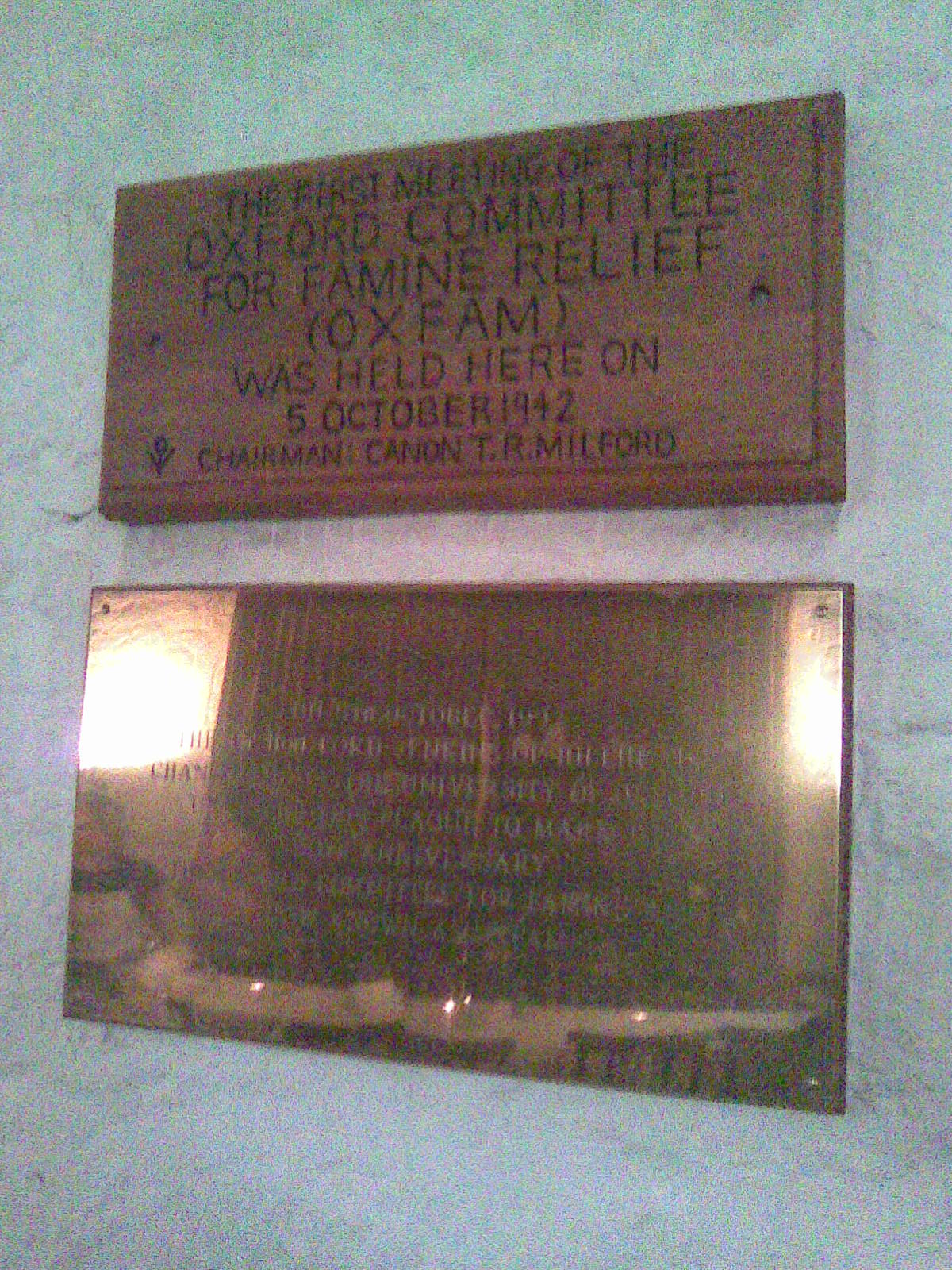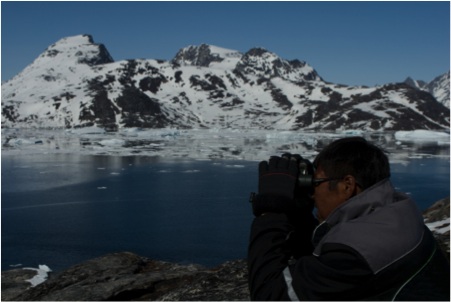|
Participatory Poverty Assessment
Participatory poverty assessment (PPA) is the approach to analyzing and reducing poverty by incorporating the views of the poor. PPAs attempt to better understand the poor, to give the poor more influence over decisions that affect their lives, and to increase effectiveness of poverty reduction policies. PPAs are seen as complements to traditional household surveys by helping to interpret survey results, and aim to capture the experiences of the poor by being more open-ended. History Before the 1990s, household-survey approaches were the main way to measure poverty. This shifted to participatory activities in the 1990s after critiques of these traditional methods.McGee, Rosemary, ed. ''Knowing Poverty''. London, GB: Routledge, 2012. ProQuest ebrary. Web. 11 May 2016. The term "participatory poverty assessment" was coined within the World Bank in 1992, and was seen as a participatory form of poverty assessments (PAs, i.e. survey-based approaches). Early experiences of PPAs were in ... [...More Info...] [...Related Items...] OR: [Wikipedia] [Google] [Baidu] |
World Bank
The World Bank is an international financial institution that provides loans and grants to the governments of low- and middle-income countries for the purpose of pursuing capital projects. The World Bank is the collective name for the International Bank for Reconstruction and Development (IBRD) and International Development Association (IDA), two of five international organizations owned by the World Bank Group. It was established along with the International Monetary Fund at the 1944 Bretton Woods Conference. After a slow start, its first loan was to France in 1947. In the 1970s, it focused on loans to developing world countries, shifting away from that mission in the 1980s. For the last 30 years, it has included NGOs and environmental groups in its loan portfolio. Its loan strategy is influenced by the Sustainable Development Goals as well as environmental and social safeguards. , the World Bank is run by a president and 25 executive directors, as well as 29 various vice ... [...More Info...] [...Related Items...] OR: [Wikipedia] [Google] [Baidu] |
Oxfam
Oxfam is a British-founded confederation of 21 independent charitable organizations focusing on the alleviation of global poverty, founded in 1942 and led by Oxfam International. History Founded at 17 Broad Street, Oxford, as the Oxford Committee for Famine Relief by a group of Quakers, social activists, and Oxford academics in 1942 and registered in accordance with UK law in 1943, the original committee was a group of concerned citizens, including Henry Gillett (a prominent local Quaker), Theodore Richard Milford, Gilbert Murray and his wife Mary, Cecil Jackson-Cole, and Alan Pim. The committee met in the Old Library of University Church of St Mary the Virgin, Oxford, for the first time in 1942, and its aim was to help starving citizens of occupied Greece, a famine caused by the Axis occupation of Greece and Allied naval blockades and to persuade the British government to allow food relief through the blockade. The Oxford committee was one of several local committees for ... [...More Info...] [...Related Items...] OR: [Wikipedia] [Google] [Baidu] |
Public Participation
Public participation, also known as citizen participation or patient and public involvement, is the inclusion of the public in the activities of any organization or project. Public participation is similar to but more inclusive than stakeholder engagement. Generally public participation seeks and facilitates the involvement of those potentially affected by or interested in a decision. This can be in relation to individuals, governments, institutions, companies or any other entities that affect public interests. The principle of public participation holds that those who are affected by a decision have a right to be involved in the decision-making process. Public participation implies that the public's contribution will influence the decision. Public participation may be regarded as a form of empowerment and as vital part of democratic governance. In the context of knowledge management the establishment of ongoing participatory processes is seen by some in the facilitator of collecti ... [...More Info...] [...Related Items...] OR: [Wikipedia] [Google] [Baidu] |
Participatory Action Research
Participatory action research (PAR) is an approach to action research emphasizing participation and action by members of communities affected by that research. It seeks to understand the world by trying to change it, collaboratively and following reflection. PAR emphasizes collective inquiry and experimentation grounded in experience and social history. Within a PAR process, "communities of inquiry and action evolve and address questions and issues that are significant for those who participate as co-researchers". PAR contrasts with mainstream research methods, which emphasize controlled experimentation, statistical analysis, and reproducibility of findings. PAR practitioners make a concerted effort to integrate three basic aspects of their work: participation (life in society and democracy), action (engagement with experience and history), and research (soundness in thought and the growth of knowledge). "Action unites, organically, with research" and collective processes of self- ... [...More Info...] [...Related Items...] OR: [Wikipedia] [Google] [Baidu] |
Participatory Monitoring
Participatory monitoring (also known as collaborative monitoring, community-based monitoring, locally based monitoring, or volunteer monitoring) is the regular collection of measurements or other kinds of data (monitoring), usually of natural resources and biodiversity, undertaken by local residents of the monitored area, who rely on local natural resources and thus have more local knowledge of those resources. Those involved usually live in communities with considerable social cohesion, where they regularly cooperate on shared projects. Participatory monitoring has emerged as an alternative or addition to professional scientist-executed monitoring. Scientist-executed monitoring is often costly and hard to sustain, especially in those regions of the world where financial resources are limited. Moreover, scientist-executed monitoring can be logistically and technically difficult and is often perceived to be irrelevant by resource managers and the local communities. Involving local p ... [...More Info...] [...Related Items...] OR: [Wikipedia] [Google] [Baidu] |
Participation (decision Making)
Citizen Participation or Public Participation in social science refers to different mechanisms for the Public consultation, public to express opinions—and ideally exert influence—regarding political, economic, management or other social decisions. Participatory decision-making can take place along any realm of human social activity, including Economy, economic (i.e. participatory economics), Politics, political (i.e. participatory democracy or parpolity), management (i.e. participatory management), Culture, cultural (i.e. polyculturalism) or Family, familial (i.e. feminism). For well-informed participation to occur, it is argued that some version of transparency (humanities), transparency, e.g. radical transparency, is necessary but not sufficient. It has also been argued that those most affected by a decision should have the most say while those that are least affected should have the least say in a topic. Classifying participation Sherry Arnstein discusses eight type ... [...More Info...] [...Related Items...] OR: [Wikipedia] [Google] [Baidu] |
World Development Report
The World Development Report (WDR) is an annual report published since 1978 by the International Bank for Reconstruction and Development (IBRD) or World Bank. Each WDR provides in-depth analysis of a specific aspect of economic development. Past reports have considered such topics as agriculture, youth, equity, public services delivery, the role of the state, transition economies, labour, infrastructure, health, the environment, risk management, and poverty. The reports are the Bank's best-known contribution to thinking about development. World Development Report 2021 World Development Report 2021: Data for Better Lives explores the tremendous potential of the changing data landscape to improve the lives of poor people, while also acknowledging its potential to open back doors that can harm individuals, businesses, and societies. It studies the various uses of data as a public good as well as harnessed by private players to enhance productivity. It explores the mechanism that coul ... [...More Info...] [...Related Items...] OR: [Wikipedia] [Google] [Baidu] |
Niger
) , official_languages = , languages_type = National languagesRépublique du Niger, "Loi n° 2001-037 du 31 décembre 2001 fixant les modalités de promotion et de développement des langues nationales." L'aménagement linguistique dans le monde (accessed 21 September 2016) , languages = , religion_ref = , religion_year = 2012 , religion = , demonym = Nigerien , capital = , coordinates ... [...More Info...] [...Related Items...] OR: [Wikipedia] [Google] [Baidu] |
Zambia
Zambia (), officially the Republic of Zambia, is a landlocked country at the crossroads of Central Africa, Central, Southern Africa, Southern and East Africa, although it is typically referred to as being in Southern Africa at its most central point. Its neighbours are the Democratic Republic of the Congo to the north, Tanzania to the northeast, Malawi to the east, Mozambique to the southeast, Zimbabwe and Botswana to the south, Namibia to the southwest, and Angola to the west. The capital city of Zambia is Lusaka, located in the south-central part of Zambia. The nation's population of around 19.5 million is concentrated mainly around Lusaka in the south and the Copperbelt Province to the north, the core economic hubs of the country. Originally inhabited by Khoisan peoples, the region was affected by the Bantu expansion of the thirteenth century. Following the arrival of European exploration of Africa, European explorers in the eighteenth century, the British colonised the r ... [...More Info...] [...Related Items...] OR: [Wikipedia] [Google] [Baidu] |
Domestic Violence
Domestic violence (also known as domestic abuse or family violence) is violence or other abuse that occurs in a domestic setting, such as in a marriage or cohabitation. ''Domestic violence'' is often used as a synonym for ''intimate partner violence'', which is committed by one of the people in an intimate relationship against the other person, and can take place in relationships or between former spouses or partners. In its broadest sense, domestic violence also involves violence against children, parents, or the elderly. It can assume multiple forms, including physical, verbal, emotional, economic, religious, reproductive, or sexual abuse. It can range from subtle, coercive forms to marital rape and other violent physical abuse, such as choking, beating, female genital mutilation, and acid throwing that may result in disfigurement or death, and includes the use of technology to harass, control, monitor, stalk or hack. Domestic murder includes stoning, bride burning, ho ... [...More Info...] [...Related Items...] OR: [Wikipedia] [Google] [Baidu] |
Child Prostitution
Child prostitution is prostitution involving a child, and it is a form of commercial sexual exploitation of children. The term normally refers to prostitution of a minor, or person under the legal age of consent. In most jurisdictions, child prostitution is illegal as part of general prohibition on prostitution. Child prostitution usually manifests in the form of sex trafficking, in which a child is kidnapped or tricked into becoming involved in the sex trade, or survival sex, in which the child engages in sexual activities to procure basic essentials such as food and shelter. Prostitution of children is commonly associated with child pornography, and they often overlap. Some people travel to foreign countries to engage in child sex tourism. Research suggests that there may be as many as 10 million children involved in prostitution worldwide. The practice is most widespread in South America and Asia, but prostitution of children exists globally, in undeveloped countries as ... [...More Info...] [...Related Items...] OR: [Wikipedia] [Google] [Baidu] |
International Bank For Reconstruction And Development
The International Bank for Reconstruction and Development (IBRD) is an international financial institution, established in 1944 and headquartered in Washington, D.C., United States, that is the lending arm of World Bank Group. The IBRD offers loans to middle-income developing countries. The IBRD is the first of five member institutions that compose the World Bank Group. The initial mission of the IBRD in 1944, was to finance the reconstruction of European nations devastated by World War II. The IBRD and its concessional lending arm, the International Development Association (IDA), are collectively known as the World Bank as they share the same leadership and staff. Following the reconstruction of Europe, the Bank's mandate expanded to advancing worldwide economic development and eradicating poverty. The IBRD provides commercial-grade or concessional financing to sovereign states to fund projects that seek to improve transportation and infrastructure, education, domestic polic ... [...More Info...] [...Related Items...] OR: [Wikipedia] [Google] [Baidu] |





